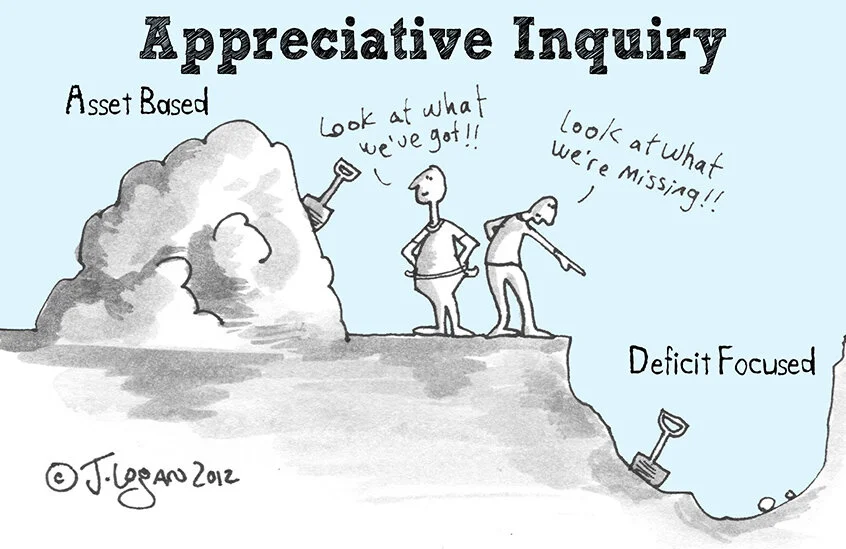By Jon-Eric Steinbomer
CEO & Research Director
Progress UX Research
We as UX Researchers spend a lot of time looking for problems. Finding and analyzing the causes of problems is something we’re really good at. It keeps designers and product managers coming to us with their hypotheses of why something’s not working, and asking for our help to find out more.
There’s undoubtedly value to the answers and insights we provide in these interactions but we need to take a step back and ask ourselves about the impacts of reflexively spending so much of our energy looking for problems. How does this orientation influence the kinds of data we’re collecting? How does this inform our interactions with participants?
What is instead possible if we look for what is already working well, or has worked well in the past - with what Appreciative Inquiry calls the “positive core?”
Appreciative Inquiry is a method we’ve been integrating into our research projects as a way to mobilize friendly curiosity, creative imagination, enlivened design thinking, and clear next steps - all based on strengths instead of problems. We’ve found the results of doing so to be far-reaching, some of which include: more engaged and imaginative participants, fluid cross-team cooperation, and most notably, alignment for everyone involved.
Appreciative Inquiry: Questions are Fateful
Appreciative Inquiry (AI) is based on the work of David L. Cooperrider, Ph.D. It is traditionally applied in the context of organizations of all kinds. It’s been used across thousands of groups around the world, including Apple, Google, Walmart, the United Nations, NASA, and British Airways, to name just a few.
It can be defined as the cooperative and co-evolutionary search for the best in people, their organizations, and the world around them. It involves the discovery of what gives “life” to a living system when it’s most effective, alive, and constructively capable in economic, ecological, and human terms. It involves the art and practice of asking questions that strengthen a system’s capacity to apprehend, anticipate, and heighten positive potential. AI interventions focus on the speed of imagination and innovation - instead of the negative, critical, and spiraling diagnosis commonly used in organizations. From The Appreciative Inquiry Handbook, by David L. Cooperrider, Diana Whitney, and Jacqueline M. Stravos. Crown Publishing, 2005.
The Affirmative Question
AI holds that people and their conversations are the organization and it’s for this reason that so much emphasis is placed on choosing questions rooted in a positive core. This orientation is due to the following principles:
Change happens the moment a question is asked or a statement is made.
What we believe to be true is informed by and evolves through conversation.
Our beliefs and perceptions influence our conversations. The opposite is also true.
Whatever we are anticipating, we are likely to encounter. Our expectations form what we look for, what we see, and what we hear.
Although AI was originally envisioned as a technology for organizations, we’ve found integrating AI techniques and principles into UX research to be highly beneficial, and doing so has had a transformative effect on how we interact with our clients and participants.
We’ve found that our interactions with people (clients and participants alike) are more fun, engaging, and we’re able to ideate much more easily and effectively as we’re coming from a place of collaboration and vitality.
We’re encouraging others in this field to explore not only learning about and implementing AI but to consider the power of a question, especially in the fertile context of imagination and design.
Would you like to know more about how we’ve integrated Appreciative Inquiry into our UX Design Sprints? Drop us a line and get in touch with us!

